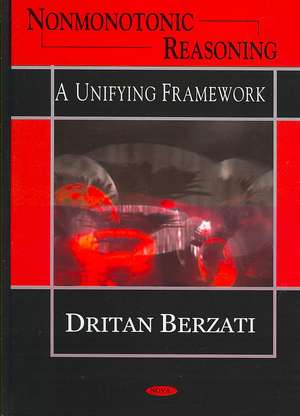Nonmonotonic Reasoning
Autor Dritan Berzatien Limba Engleză Hardback – 24 apr 2007
Preț: 728.09 lei
Preț vechi: 846.62 lei
-14% Nou
Puncte Express: 1092
Preț estimativ în valută:
139.32€ • 148.98$ • 116.16£
139.32€ • 148.98$ • 116.16£
Carte indisponibilă temporar
Doresc să fiu notificat când acest titlu va fi disponibil:
Se trimite...
Preluare comenzi: 021 569.72.76
Specificații
ISBN-13: 9781594545627
ISBN-10: 1594545626
Pagini: 172
Dimensiuni: 188 x 263 x 17 mm
Greutate: 0.58 kg
Editura: Nova Science Publishers Inc
ISBN-10: 1594545626
Pagini: 172
Dimensiuni: 188 x 263 x 17 mm
Greutate: 0.58 kg
Editura: Nova Science Publishers Inc
Cuprins
Preface; Monotonic Reasoning; Set Theory; Propositional Logic; Consequences of a Theory; Nonmonotonic Reasoning; Foundations; Nonmonotonic Systems; Objections; Argumentation Systems; Formal Development; Basic Properties; Separable Argumentation Systems; Remarks; Reiter's Default Logic; Syntactic Development; Semantics of Default Logic; Translation; Autoepistemic Logic; Autoepistemic Expansions; Embedding; Relations To Default Logic; Inverse Transformation; Modified Default Logic; Modified Extensions; Semantics for Modified Default Logic; Characterisation of Modified Extensions; Alternative Formalisations; Constrained Default Logic; Hypothetical Default Logic; Constrained vs. Hypothetical Default Reasoning; Super-normal Default Theories; Minimisation and Falsification; Circumscription; Negation as Failure; Argumentation Systems and Minimisation; Bibliography; Index.
